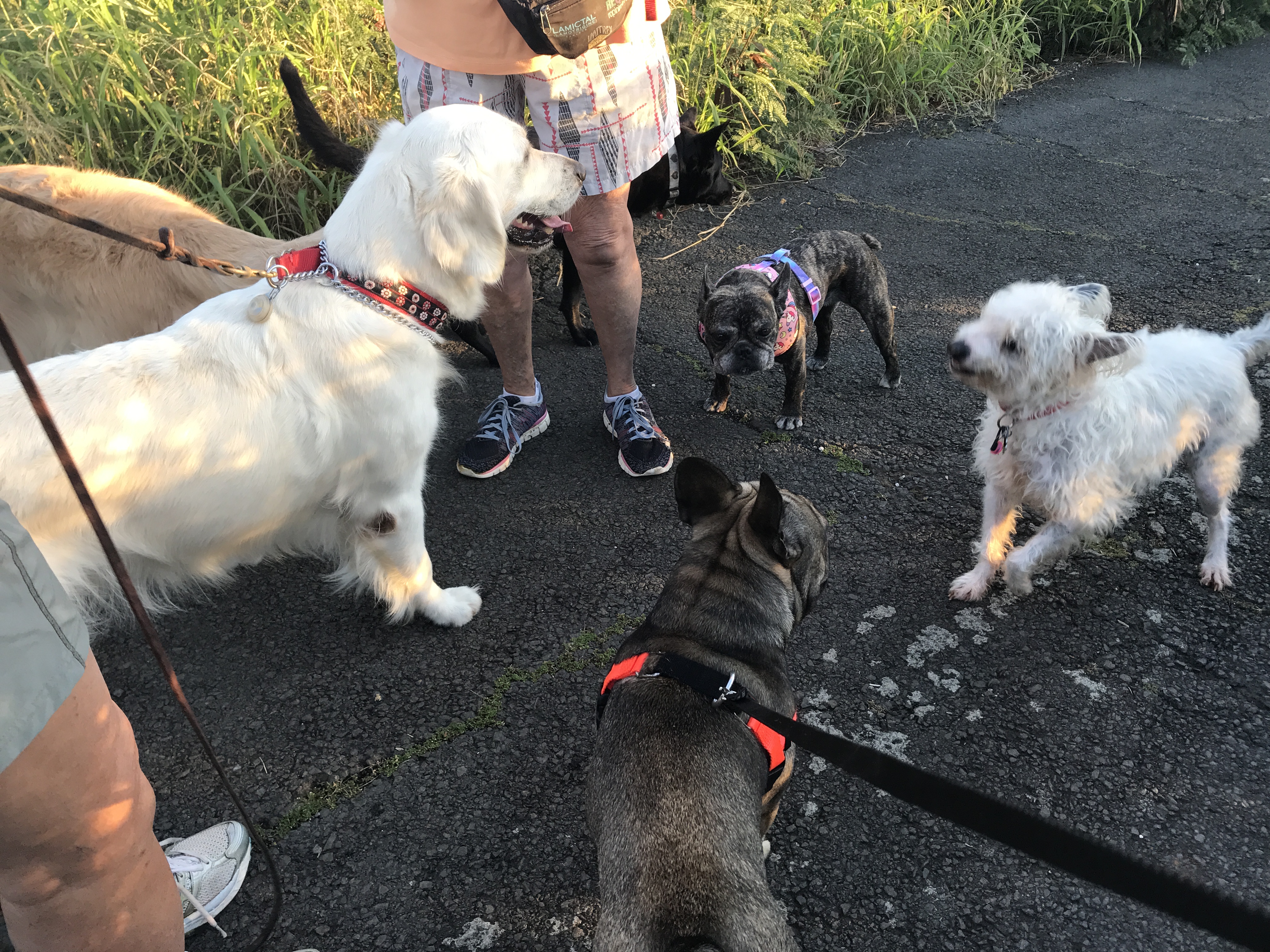In the article “Developing a Confident and Reliable Companion,” we touched upon how important it is to acknowledge the “critical stages” of development that all canines go through and the need for methodical socialization. This is important IF your desire is to raise a confident and reliable “adult” companion. If your adult fur kid is scared or suspicious of various things (noises, people, other dogs, etc.), you will find it very difficult to enjoy a reliable companion with a steady temperament. Instead, you will find yourself making excuses for why he or she is “reactive” because you never took the time to nurture and develop a confident and reliable fur kid. As my friend Trudi and I use to repeatedly tell our students in our puppy obedience class–“YOU get the dog that you EARNED!”
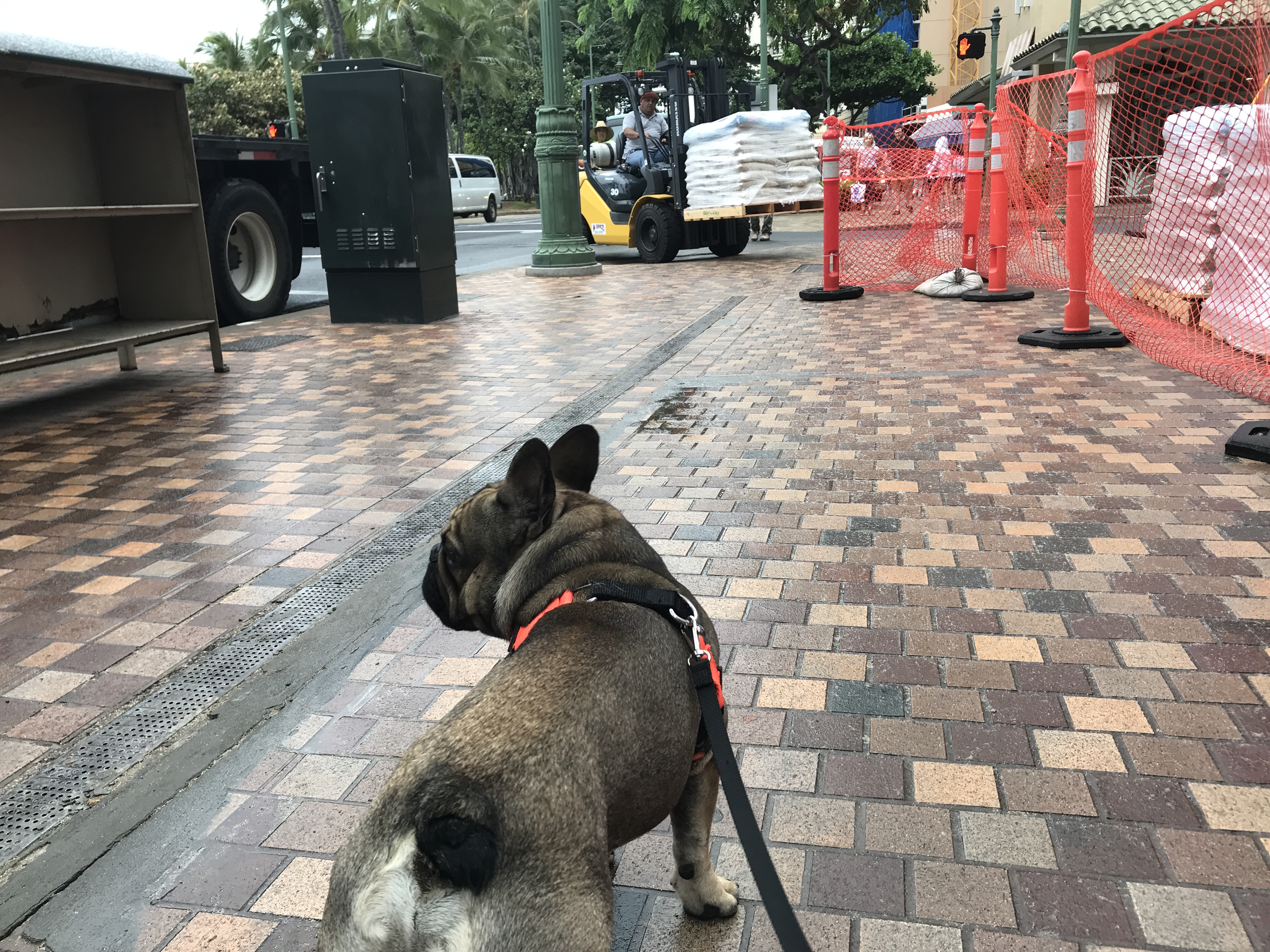
A recent outing with Ola (12 months old) to chaotic Waikiki, tested all that we’ve methodically progressed up to since we got him at 8 weeks old. The weeks and months leading up to his experiencing this challenging environment of tourists, joggers, workers, homeless people and cars, trucks and construction equipment proved to be an excellent environment where I could continue to train him. Always with the desire to help him continue to develop into a “confident and reliable” adult companion dog. Using the “BASIC FORMULA” of praising calm and steady behavior and allowing him to become more comfortable with a situation that might otherwise concern him (a foreign speaking man, the moving forklift and a noisy truck who pulled up right next to him). When these concerns arose, I simply allowed him to check things out, while maintaining a loose lead where he continued to learn to relax in this new environment. An important tip is for YOU to remain QUIET and be STILL while he or she is assessing the situation.
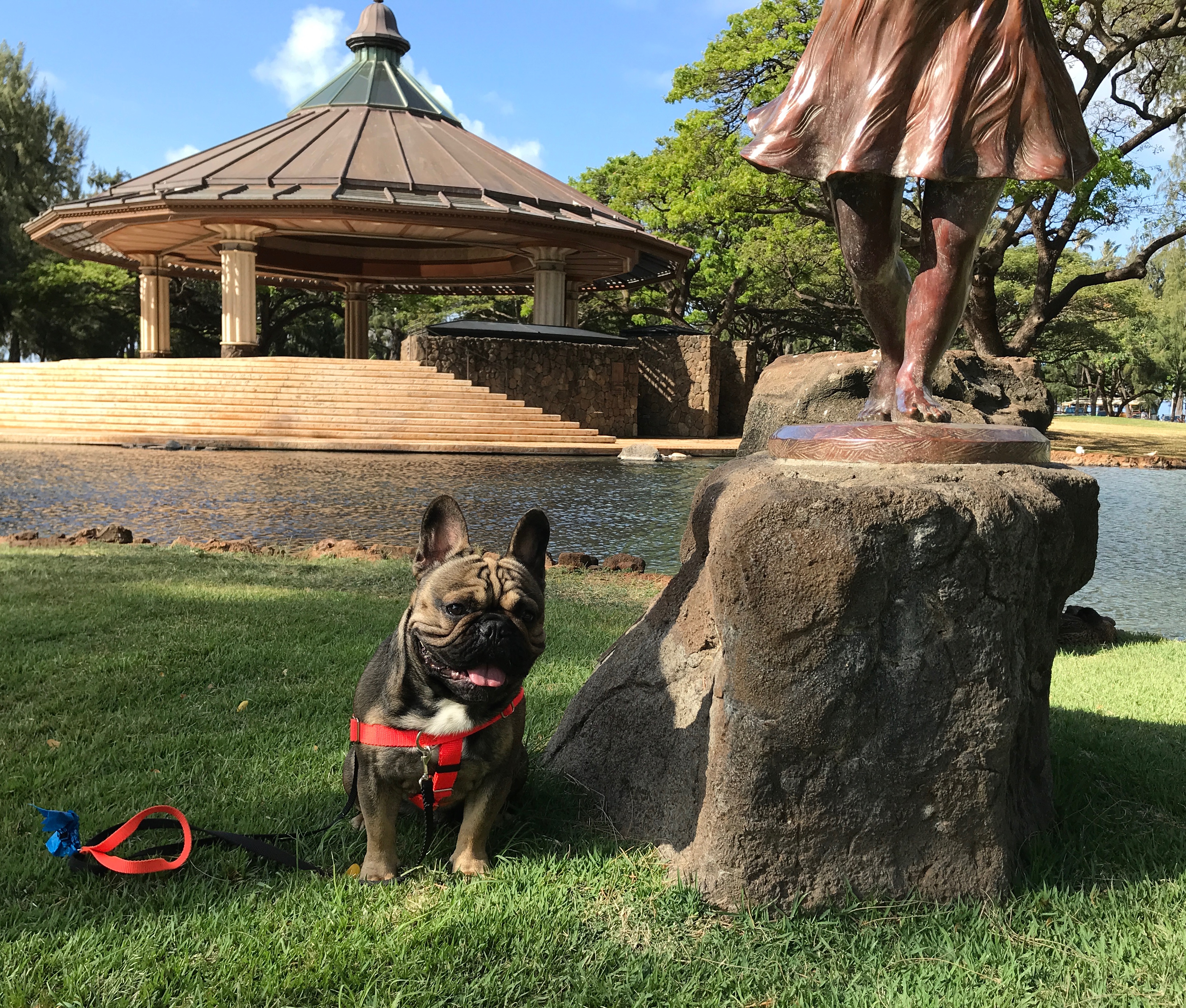
Three part concerns with consideration of what “Critical Stage” Ola was in: 1. Noises and activities. 2. Meeting different people. 3. Greeting other dogs.
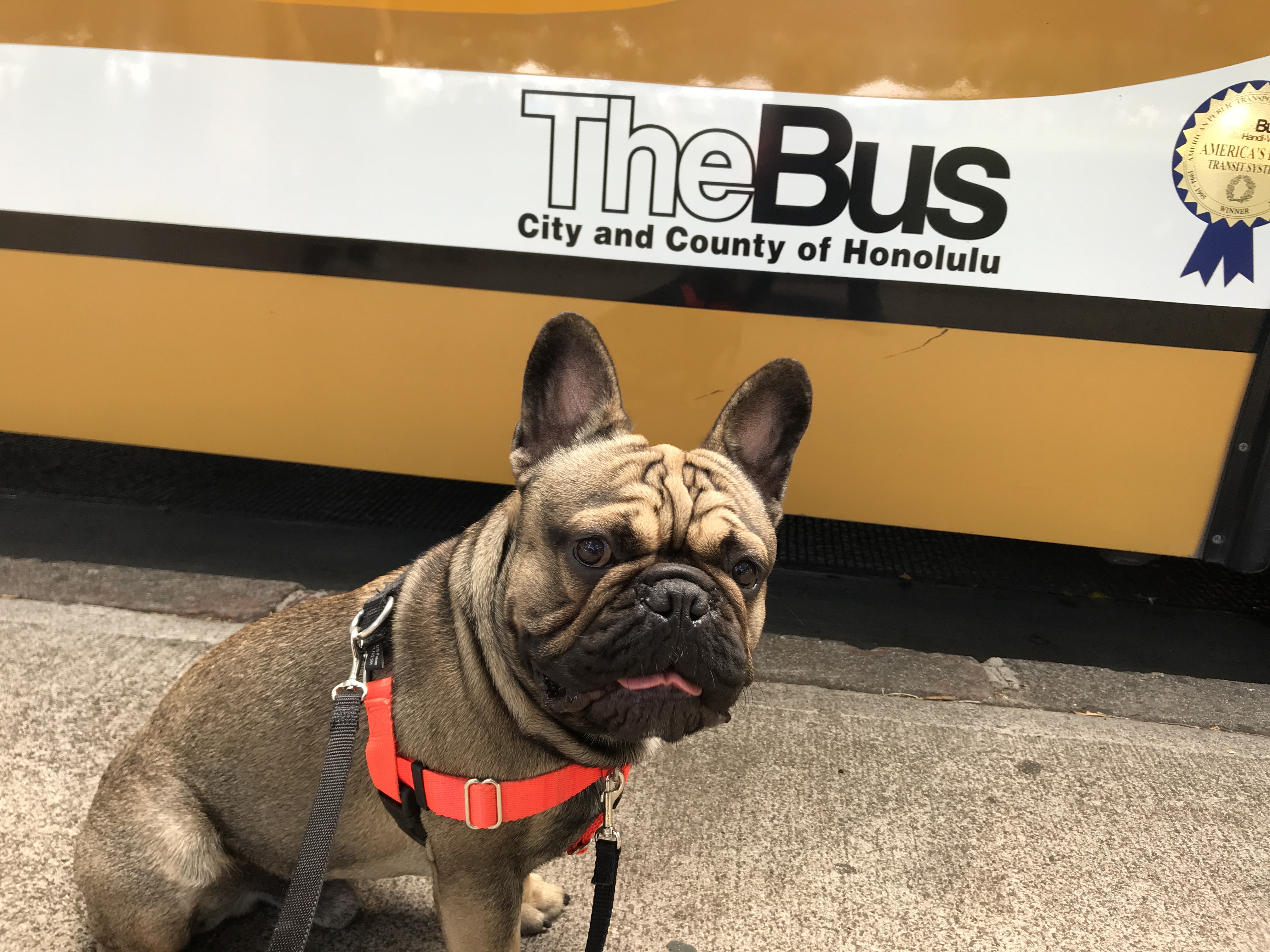
1. Noises and Activities: When Ola was very young (16 weeks) his tendency was to bolt when something concerned him (Out of sight Dogs barking, trucks whizzing by, construction workers, etc) . If I had allowed him to do this (or worse yet blab to him about how all is ok which inadvertently is reinforcing the very undesired reactive behavior), he would still have this tendency like many dogs do who pull their owner away or break loose from their owners to go into “flight” mode. Instead, when he had that tendency in the beginning, I’d make sure he was safe, maintained a loose lead and simply halted in place for as long as it took for him to “check it out” from afar and I waited patiently for him to relax before proceeding.

2. Meeting different people: I initially recruited friends when he needed to remain within our home due to a chosen delayed vaccination schedule. My friends were to remain calm and if he jumped were instructed to quietly and immediately “turn away and ignore him.” A few who insisted on riling him up and making him hyper got scoldings from me and were not allow to be part of his socialization. Foundational work is CRITICAL or else you only have yourself to blame for an adult dog who jumps and claws guests or worse yet snaps at them! When he was about 7+ months old, he had progressed so we visited Stu at the local Pharmacy and he commented that Ola was one of the calmest French Bulldogs he ever met. Ola’s recent outing to a pet store where a worker gave him a treat earned him a comment of “Wow! He sat on his own.”

3. Greeting manners with other dogs: These lessons began by bringing Ola out to meet my clients’ dogs who I KNEW were dog friendly when he was about 7 months old (after his titers and out of his second fear period). “Wait” was practiced before allowing him to the enter room and approach on a loose lead was worked. “All Pau” (finished) was practiced as we would leave the other dog and room without him pulling to go back to the other dog, but walking with me back into house.
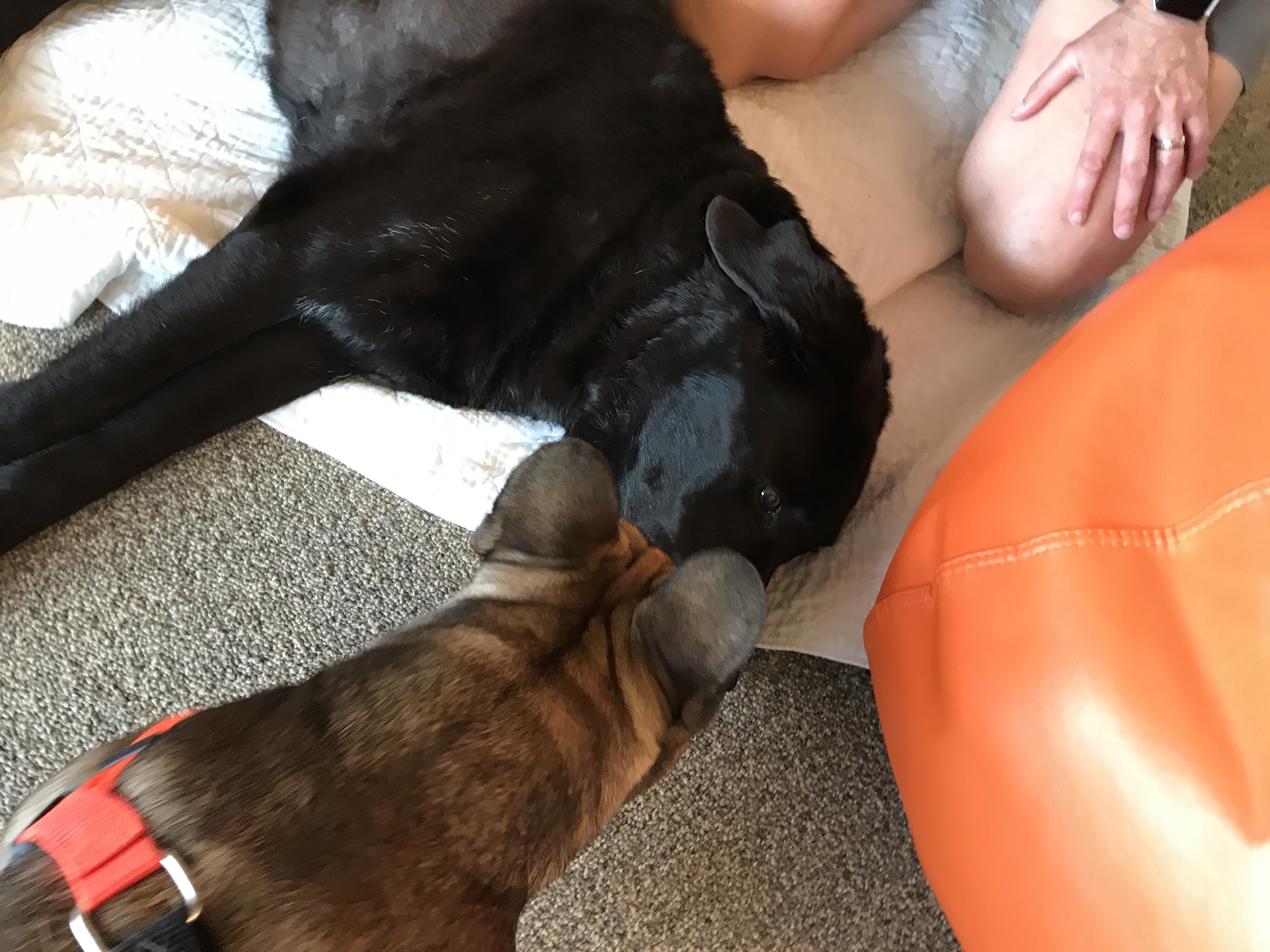
A conscientious Dog Mom and Dad that desires a confident and reliable ADULT dog will need to do what is right for your dog. For instance, I had enrolled Ola in a training class that could only be described as a free for all–it was fun, but I had to acknowledge that it wasn’t taught in a methodical manner so we didn’t continue. YOUR awareness of “critical stages” and ability to READ your dog’s progress is very important. “Building on success” is critical in developing that confident and reliable ADULT dog. Even Dogs that have been rescued as an adult can evolve out of their reactive nature depending how diligent your training plan is.
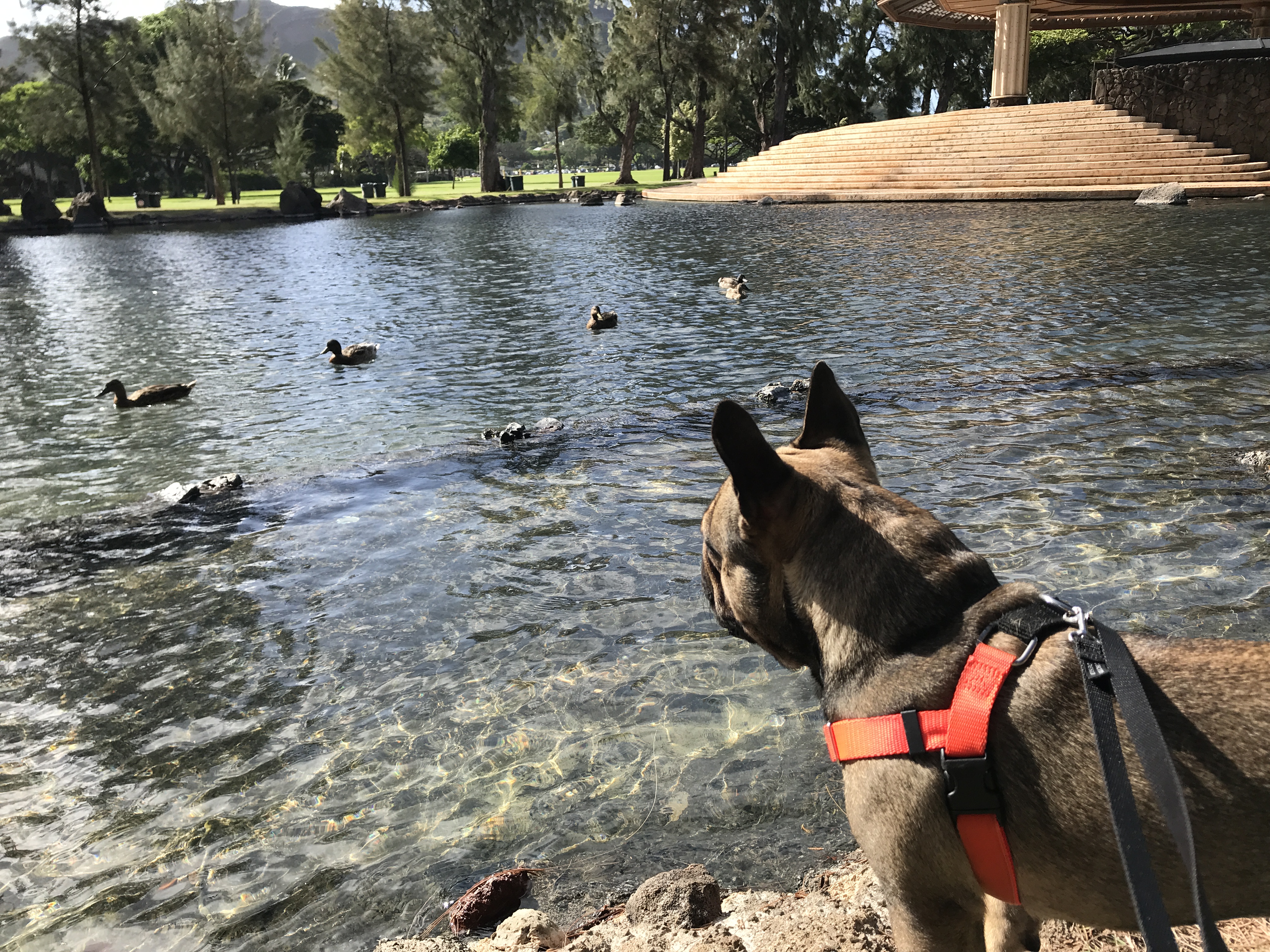
Basic Formula– Keep training “progressive in nature” but work methodically from wherever your dog is. If progress isn’t happening (like Ola’s training class)–REASSESS what you are doing and make adjustments!

